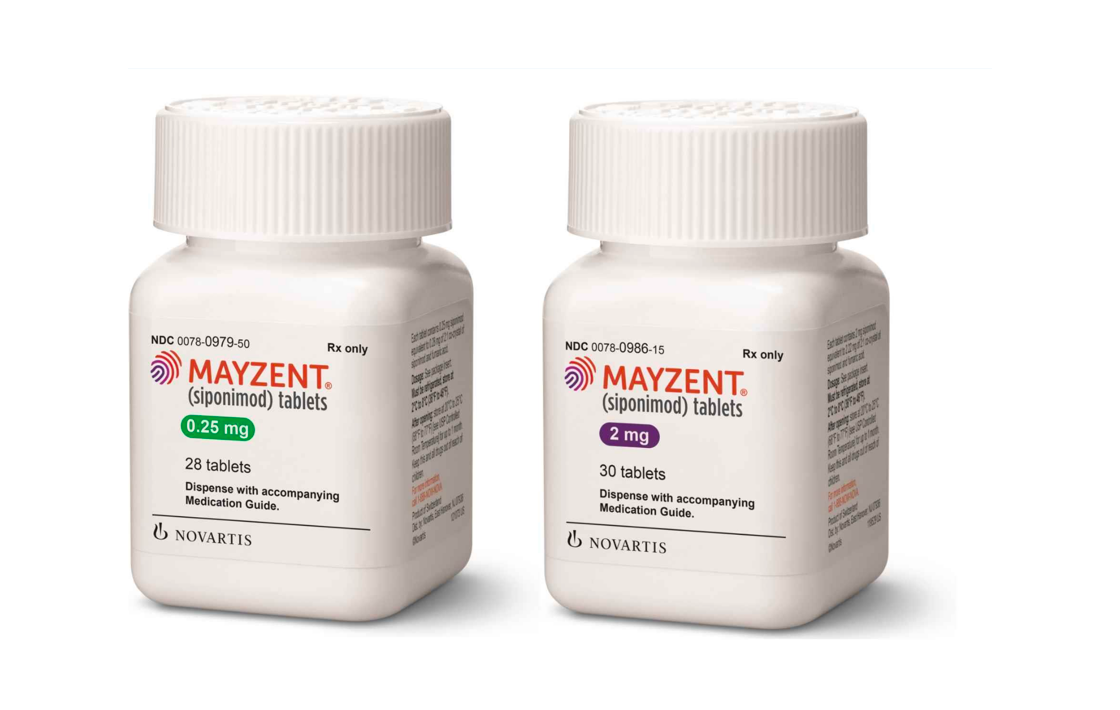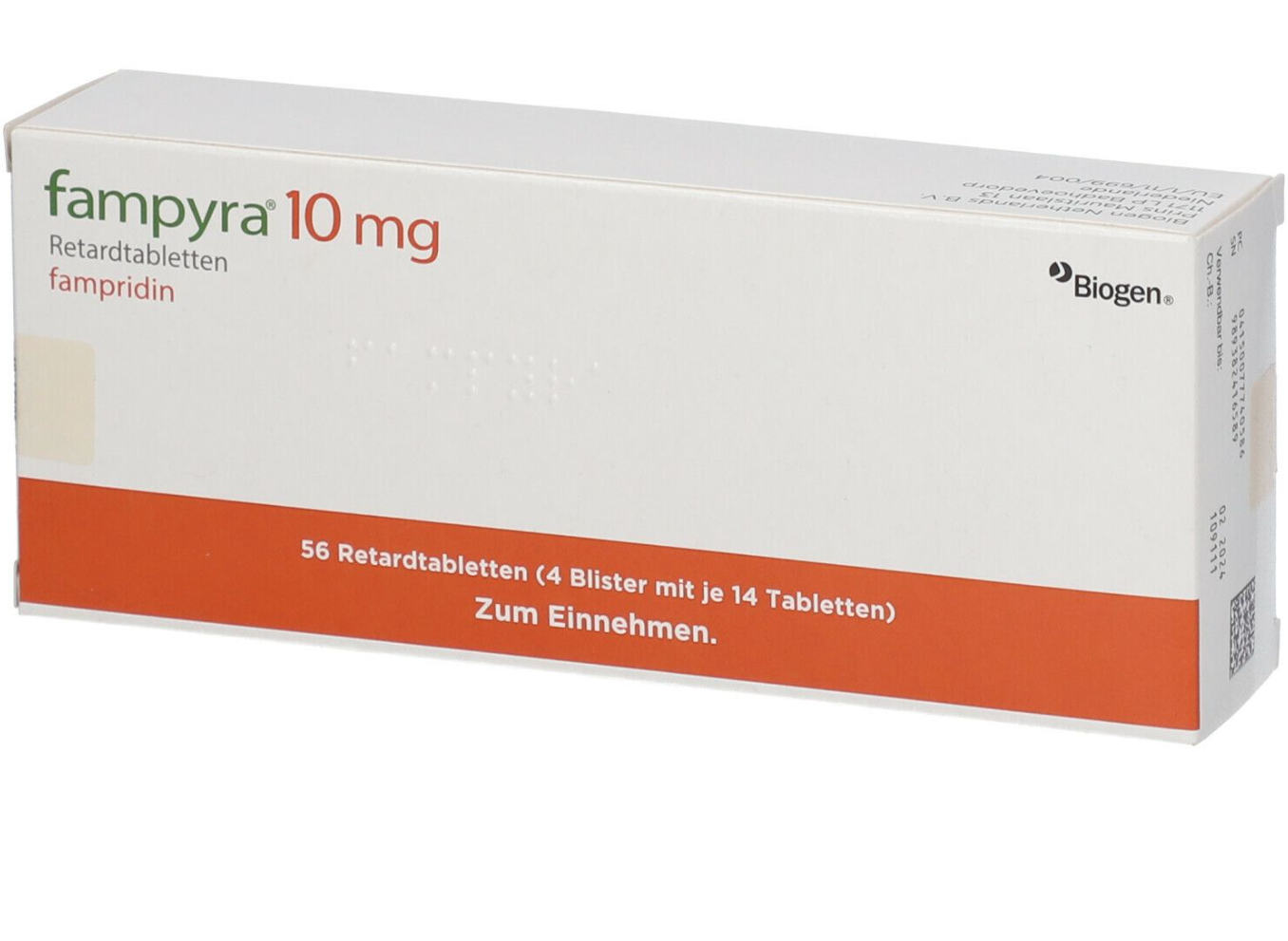Mayzent (Siponimod) vs Fampyra (fampridine)
Mayzent (Siponimod) vs Fampyra (fampridine)
Mayzent (Siponimod) is a sphingosine 1-phosphate receptor modulator indicated for the treatment of relapsing forms of multiple sclerosis (MS), including clinically isolated syndrome, relapsing-remitting disease, and active secondary progressive disease, to delay disease progression and reduce flare-ups. Fampyra (fampridine), on the other hand, is a potassium channel blocker that is approved to improve walking in patients with MS; it works by enhancing nerve signal conduction in damaged nerves. When deciding between the two, it is important to consider the specific symptoms and disease course, as Mayzent is used for broader MS management, while Fampyra is specifically aimed at improving walking speed and ability in MS patients.
Difference between Mayzent and Fampyra
| Metric | Mayzent (Siponimod) | Fampyra (fampridine) |
|---|---|---|
| Generic name | Siponimod | Fampridine |
| Indications | Relapsing forms of multiple sclerosis (MS), including clinically isolated syndrome, relapsing-remitting disease, and active secondary progressive disease, in adults | Improvement of walking in patients with multiple sclerosis (MS) who have walking disability |
| Mechanism of action | Sphingosine 1-phosphate receptor modulator which sequesters lymphocytes in lymph nodes, reducing the infiltration of these cells into the central nervous system | Potassium channel blocker that improves conduction of action potentials in demyelinated axons through potassium channels |
| Brand names | Mayzent | Fampyra |
| Administrative route | Oral | Oral |
| Side effects | Headache, hypertension, liver function test increases, bradyarrhythmia, macular edema, infections, etc. | Urinary tract infection, insomnia, dizziness, headache, nausea, weakness, back pain, etc. |
| Contraindications | CYP2C9*3/*3 genotype, recent myocardial infarction, unstable angina, stroke, transient ischemic attack, decompensated heart failure requiring hospitalization, Class III/IV heart failure, Mobitz type II second-degree or third-degree atrioventricular block or sick sinus syndrome unless the patient has a functioning pacemaker | History of seizures, moderate to severe renal impairment (CrCl ≤50 mL/min) |
| Drug class | Sphingosine 1-phosphate receptor modulator | Potassium channel blocker |
| Manufacturer | Novartis | Biogen (marketed as Fampyra in some countries), Acorda Therapeutics (marketed as Ampyra in the U.S.) |
Efficacy
Mayzent (Siponimod) for Multiple Sclerosis (MS)
Mayzent (Siponimod) is a medication that has been approved for the treatment of multiple sclerosis (MS), specifically for relapsing forms of the disease, including clinically isolated syndrome, relapsing-remitting disease, and active secondary progressive disease. The efficacy of Mayzent in treating MS was demonstrated in a pivotal phase III clinical trial known as EXPAND. The study showed that Mayzent significantly reduced the risk of disease progression, including delays in disability progression that were sustained for three and six months. Additionally, Mayzent was shown to reduce the annualized relapse rate in individuals with relapsing forms of MS.
The mechanism of action of Siponimod involves the modulation of the sphingosine-1-phosphate receptor, which is believed to have a role in the pathogenesis of MS by retaining lymphocytes in lymph nodes, thereby reducing their migration to the central nervous system and subsequent neuronal inflammation and damage. By targeting these pathways, Mayzent can mitigate the immune system's attack on the myelin sheath of nerves, which is the hallmark of MS.
Fampyra (Fampridine) for Multiple Sclerosis (MS)
Fampyra (Fampridine), known as Ampyra in the United States, is another medication used in the management of MS. It is approved to improve walking in patients with MS. This was demonstrated by an increase in walking speed in clinical trials. Fampridine is a potassium channel blocker that works by improving the conduction of signals in nerves that have been damaged by MS. Unlike Mayzent, Fampyra does not alter the course of the disease but rather improves a specific symptom associated with MS, which is walking ability.
The clinical trials assessing the efficacy of Fampyra in MS patients have shown that a significant proportion of individuals taking the medication experienced an improvement in their walking speed compared to those taking a placebo. The improvement in mobility is an important aspect of quality of life for patients with MS, as it can impact their ability to perform daily activities and maintain independence. However, it is important to note that not all patients with MS will respond to Fampyra, and its efficacy can vary from person to person.
Regulatory Agency Approvals
Mayzent
-
European Medical Agency (EMA), European Union

-
Food and Drug Administration (FDA), USA

-
Therapeutic Goods Administration (TGA), Australia

Fampyra
-
European Medical Agency (EMA), European Union

-
Food and Drug Administration (FDA), USA

-
Health Canada

-
Therapeutic Goods Administration (TGA), Australia

-
Medsafe (NZ)

Access Mayzent or Fampyra today
If Mayzent or Fampyra are not approved or available in your country (e.g. due to supply issues), you can access them via Everyone.org.
How it works

Make an enquiry
Choose the medicine you want to buy, answer a couple of questions, and upload your prescription to speed things up. We’ll get back to you within 24 hours.


Make an enquiry
Choose the medicine you want to buy, answer a couple of questions, and upload your prescription to speed things up. We’ll get back to you within 24 hours.


Breeze through the paperwork
We'll guide you through the required documents for importing unapproved medicine, ensuring you have all the necessary information.


Get a personalized quote
We’ll prepare a quote for you, including medicine costs and any shipping, administrative, or import fees that may apply.


Receive your medicine
Accept the quote and we’ll handle the rest - sourcing and safely delivering your medicine.

Some text on this page has been automatically generated. Speak to your physician before you start a new treatment or medication.
Let's talk
If you have any questions, call us or send us a message through WhatsApp or email:
Contact us




